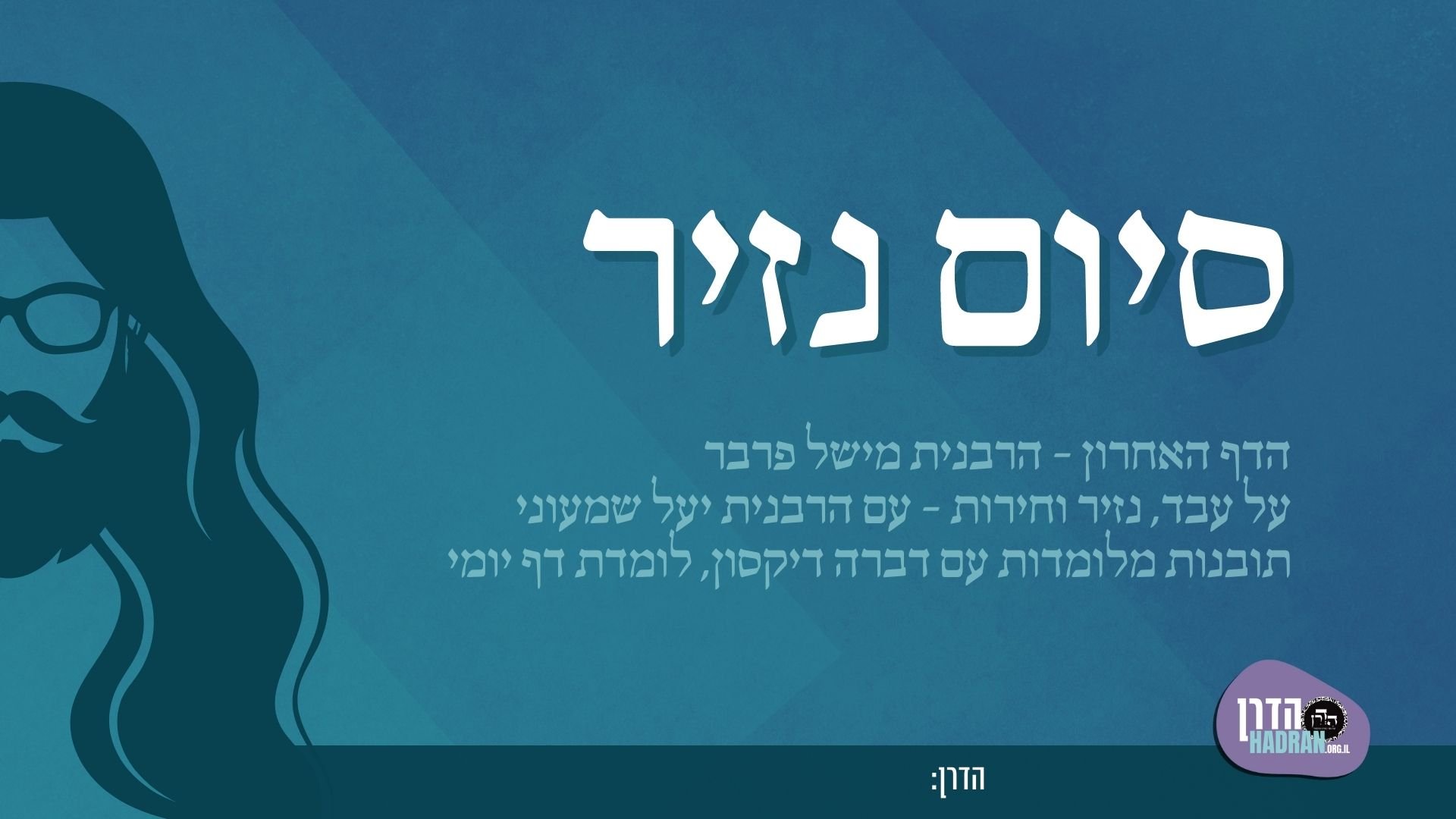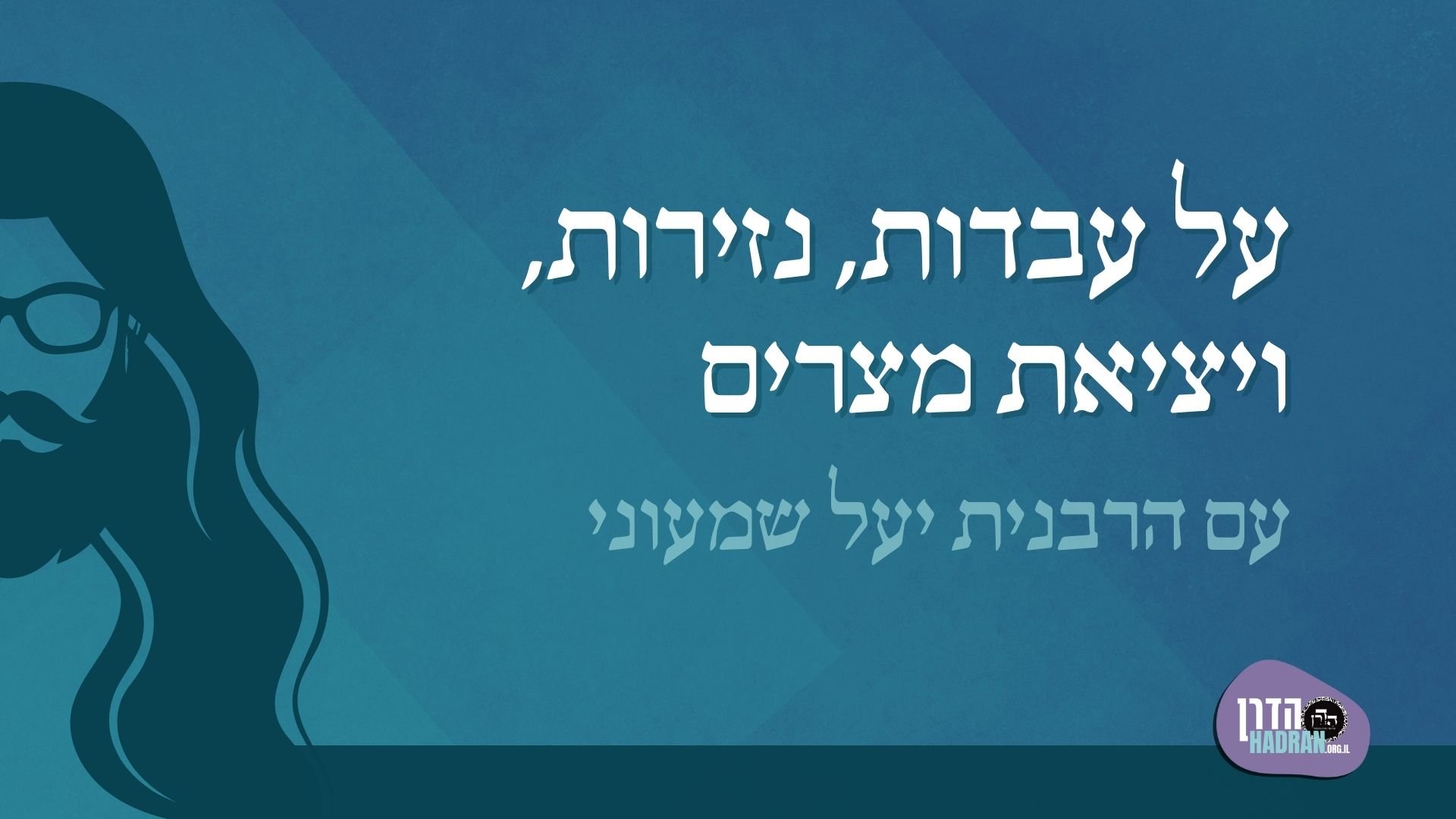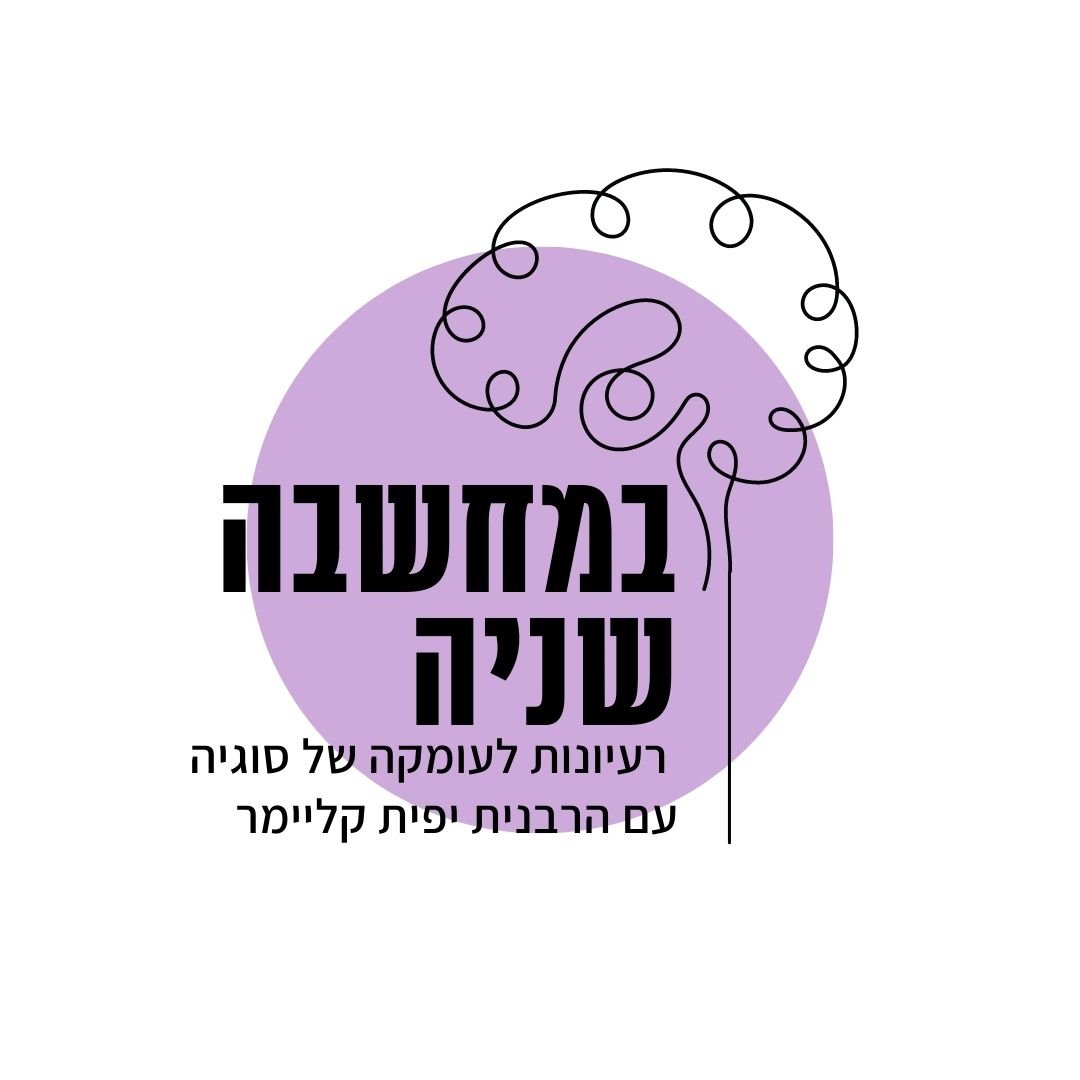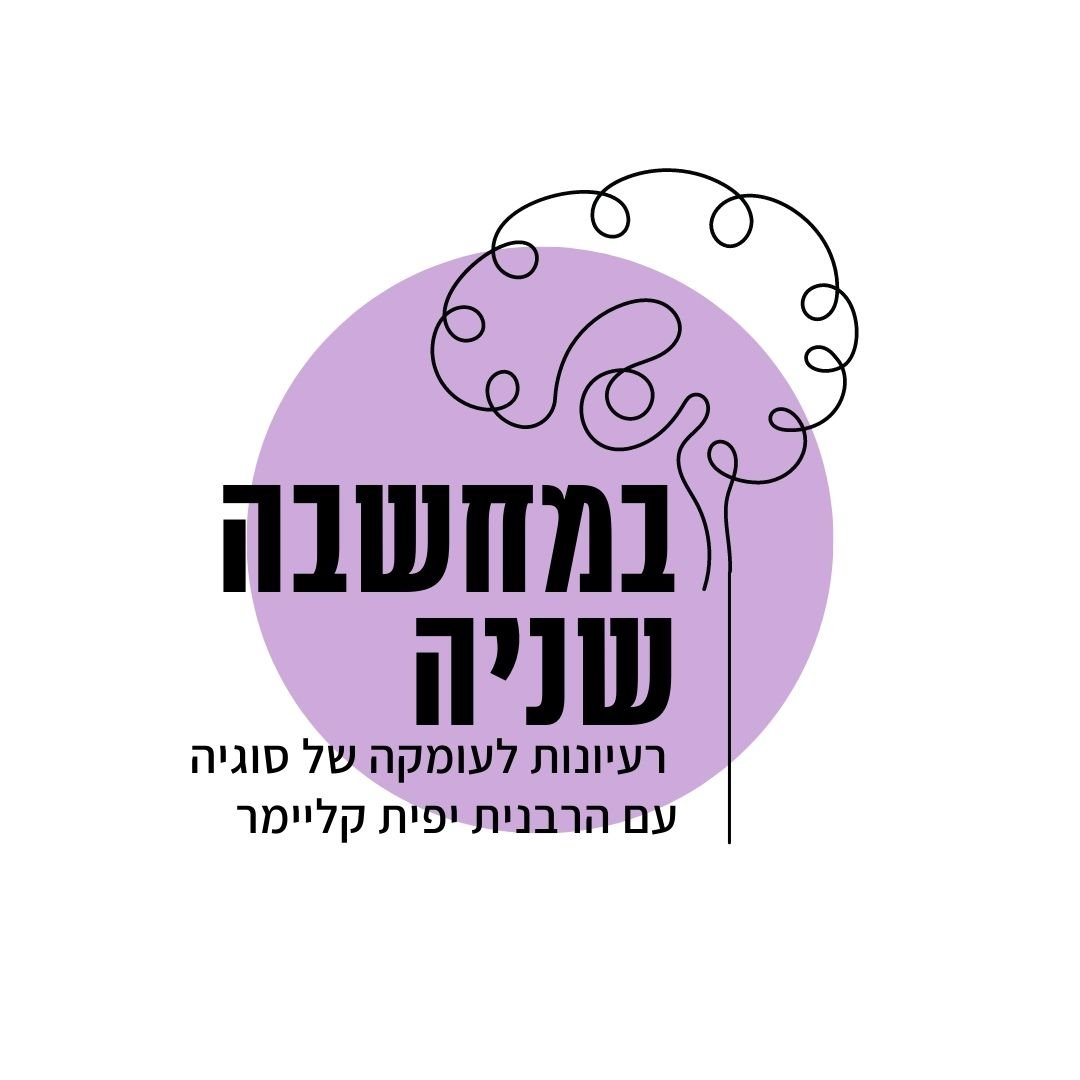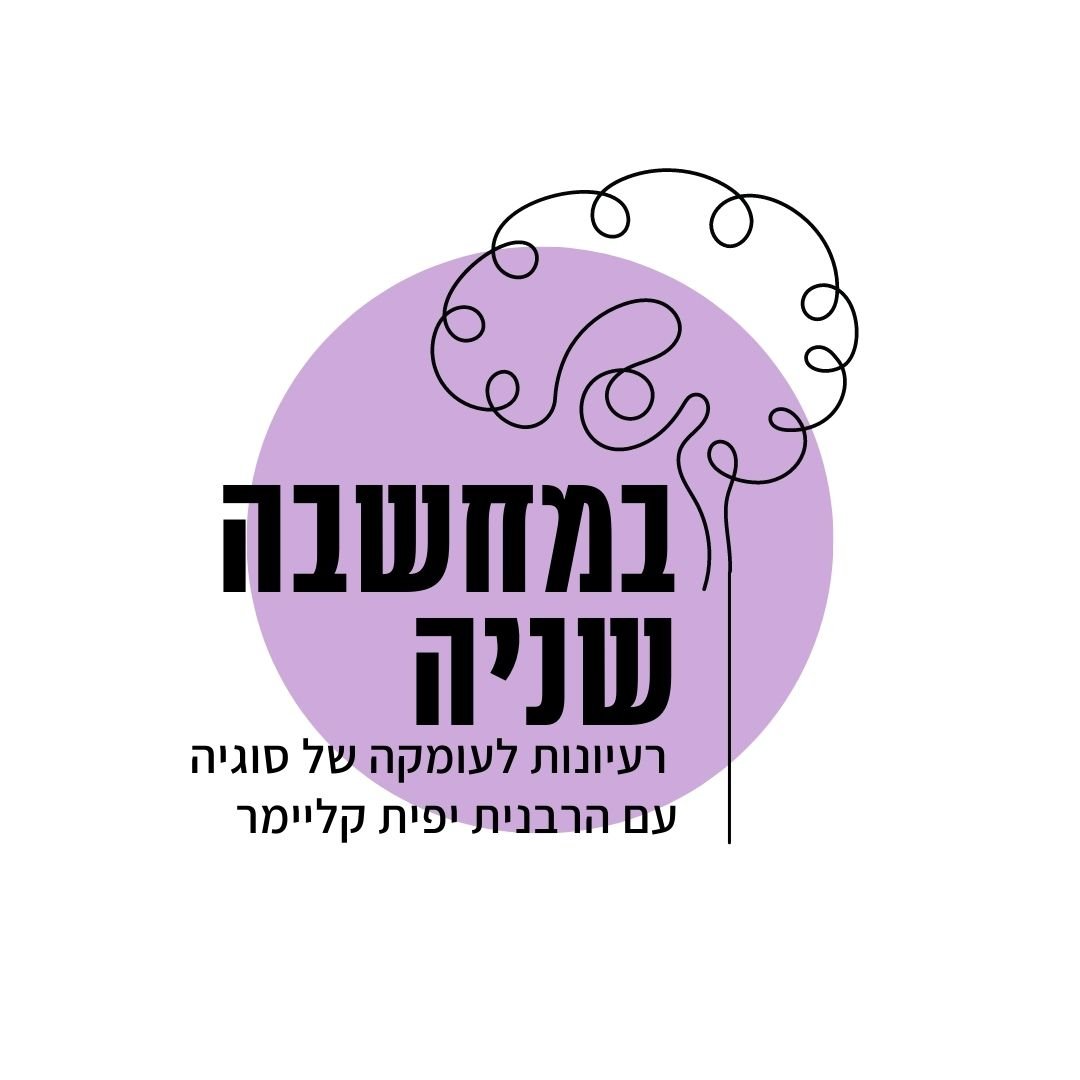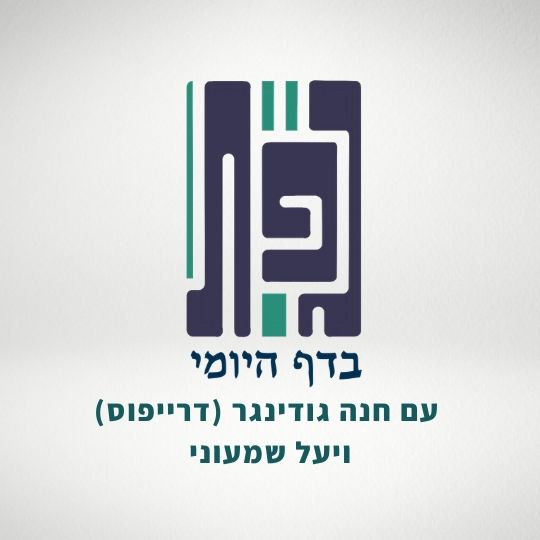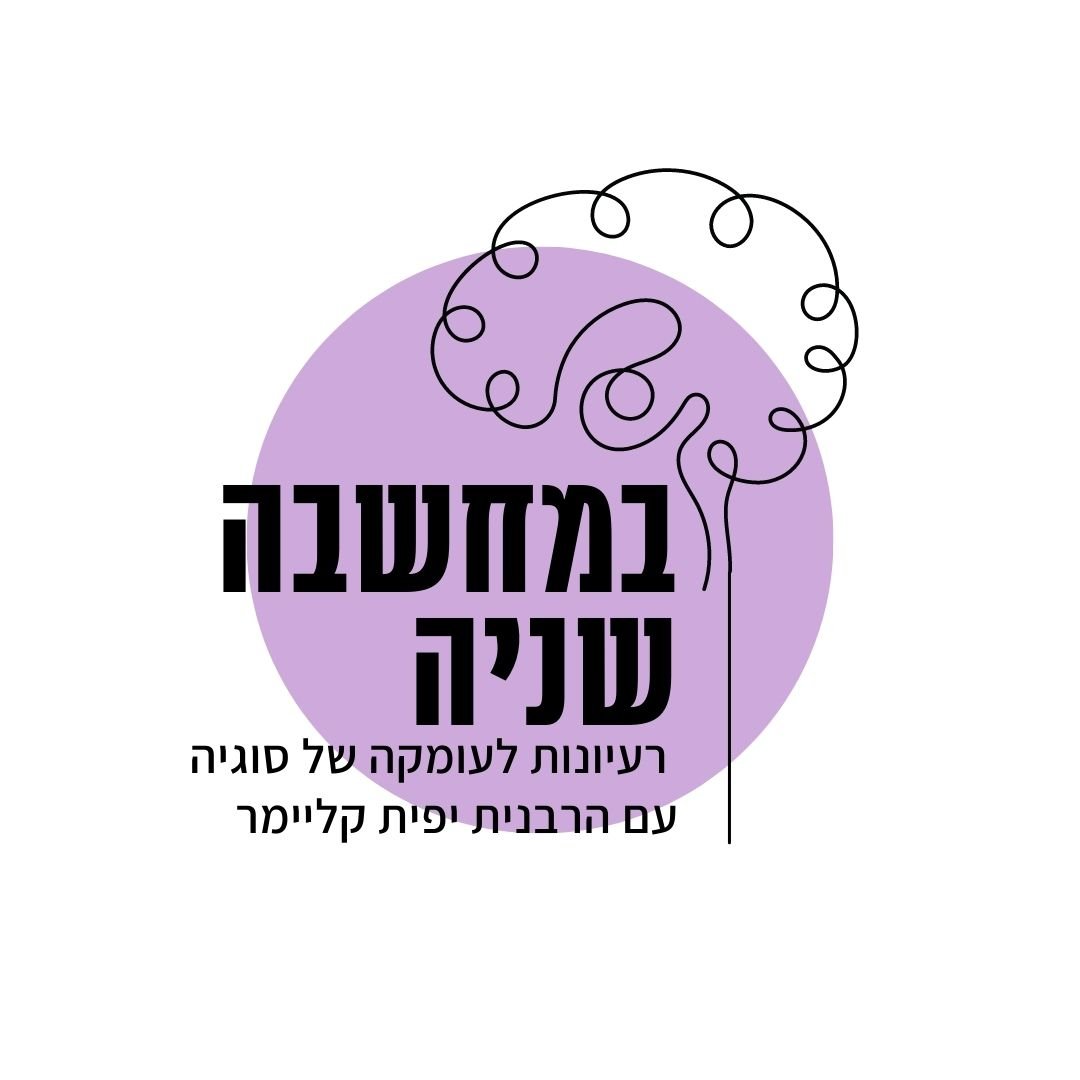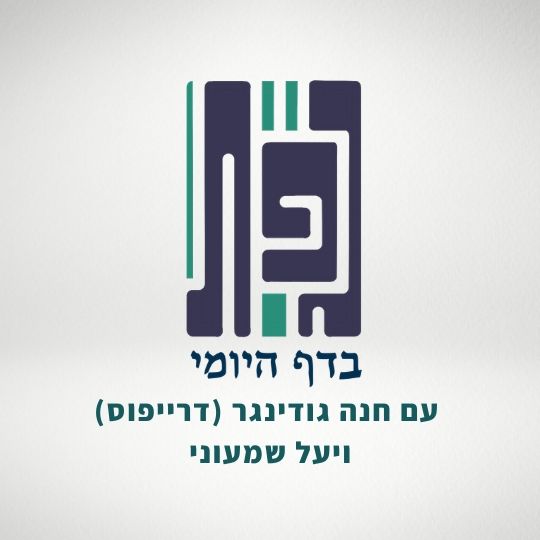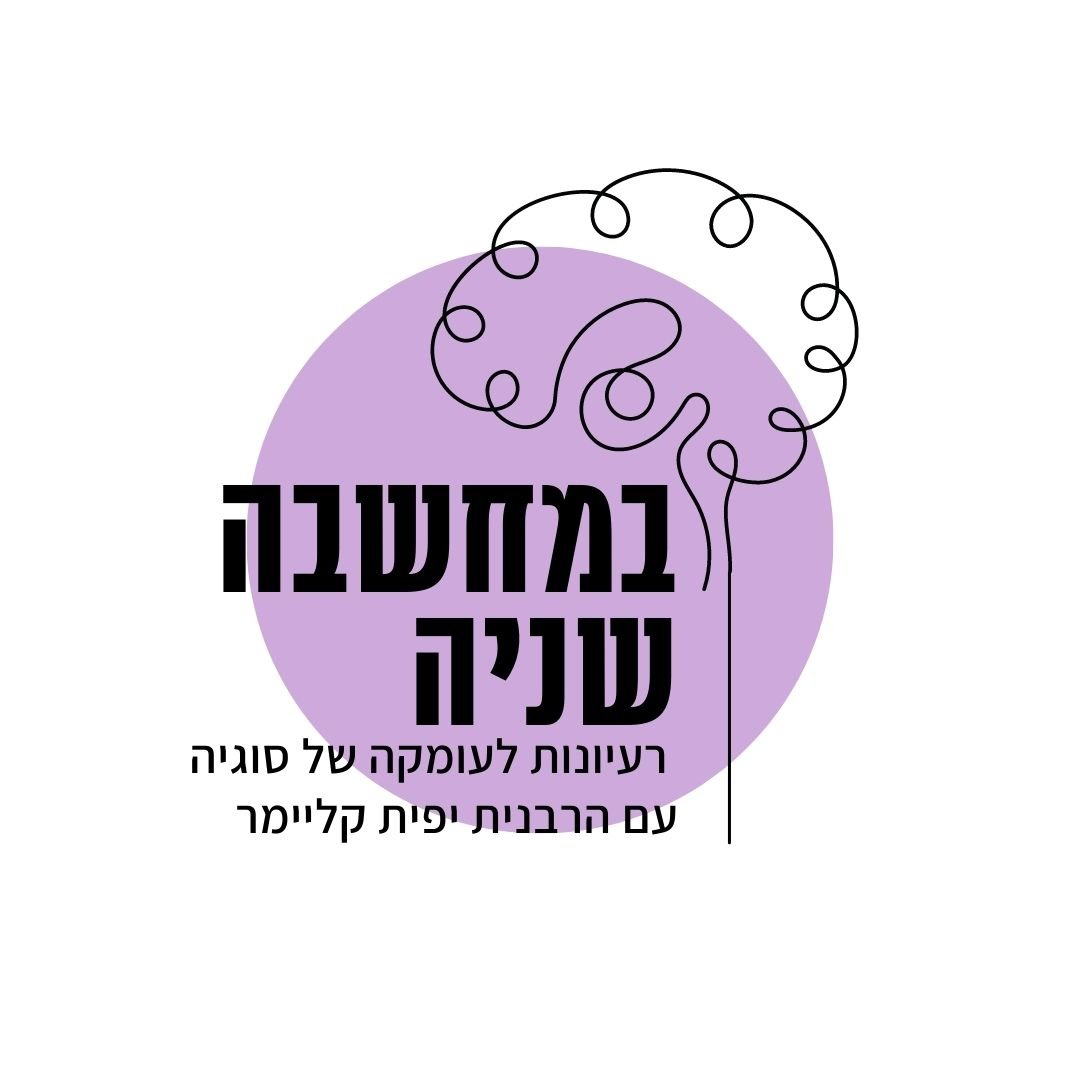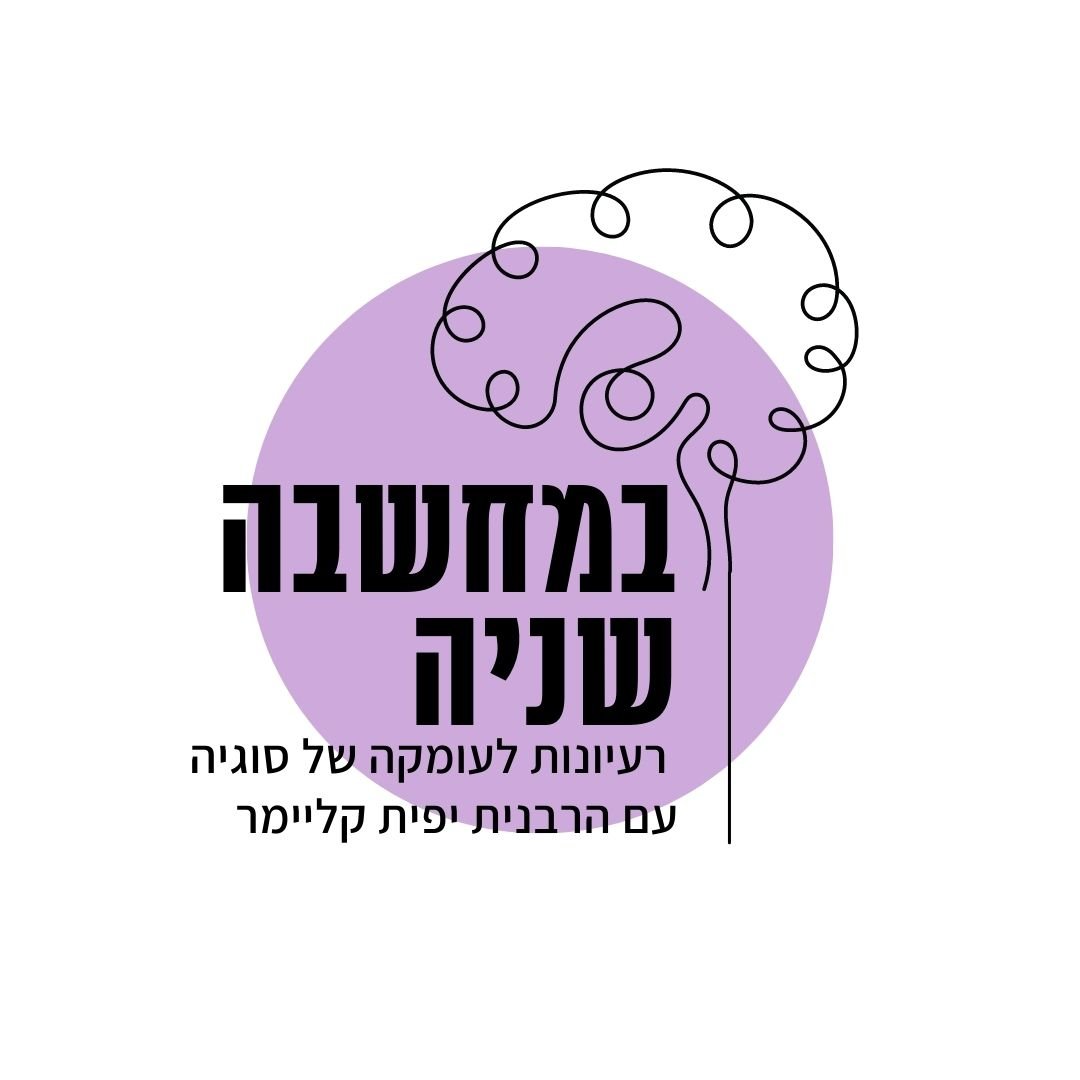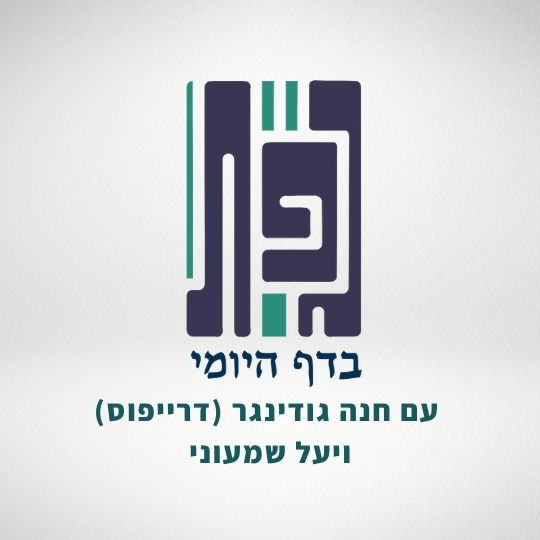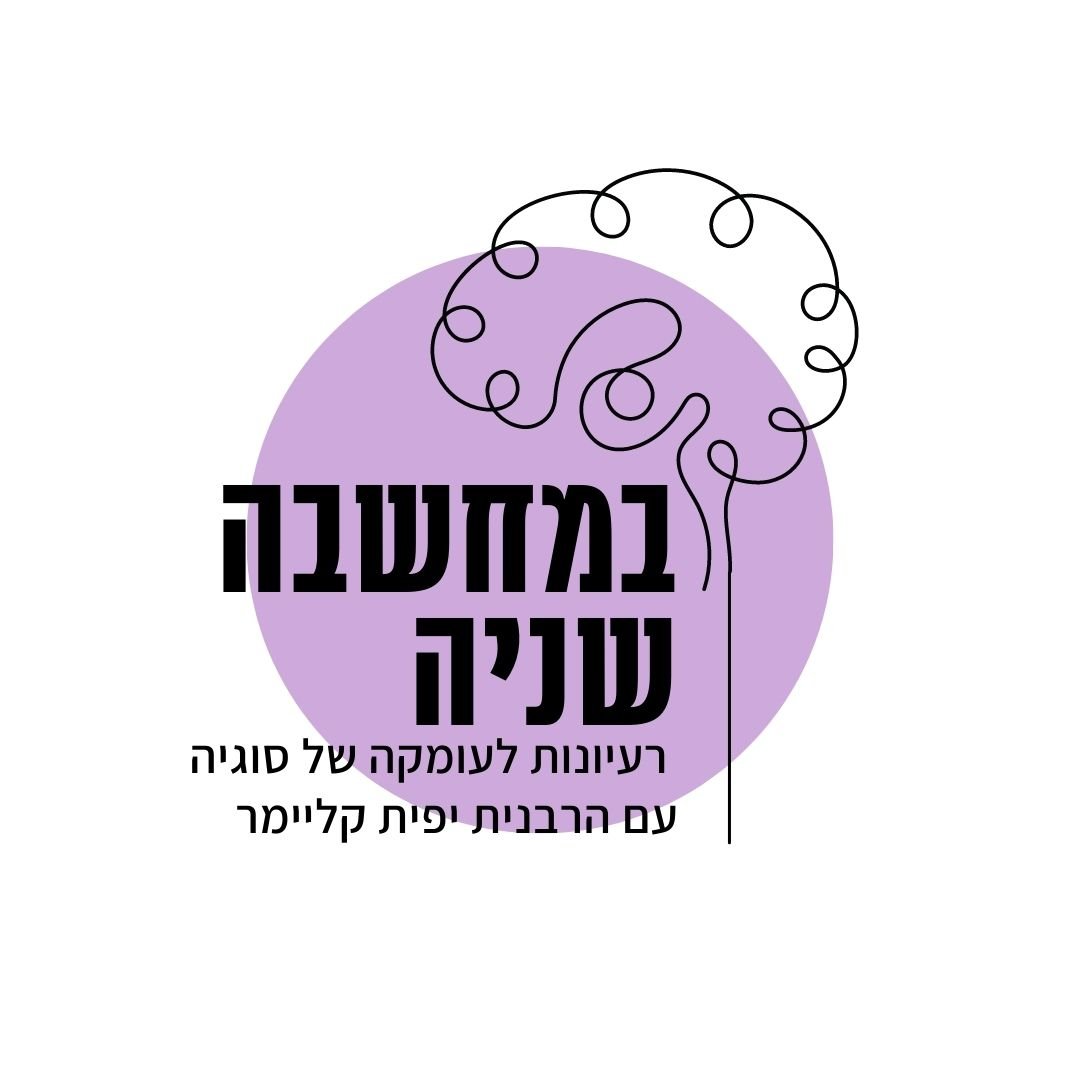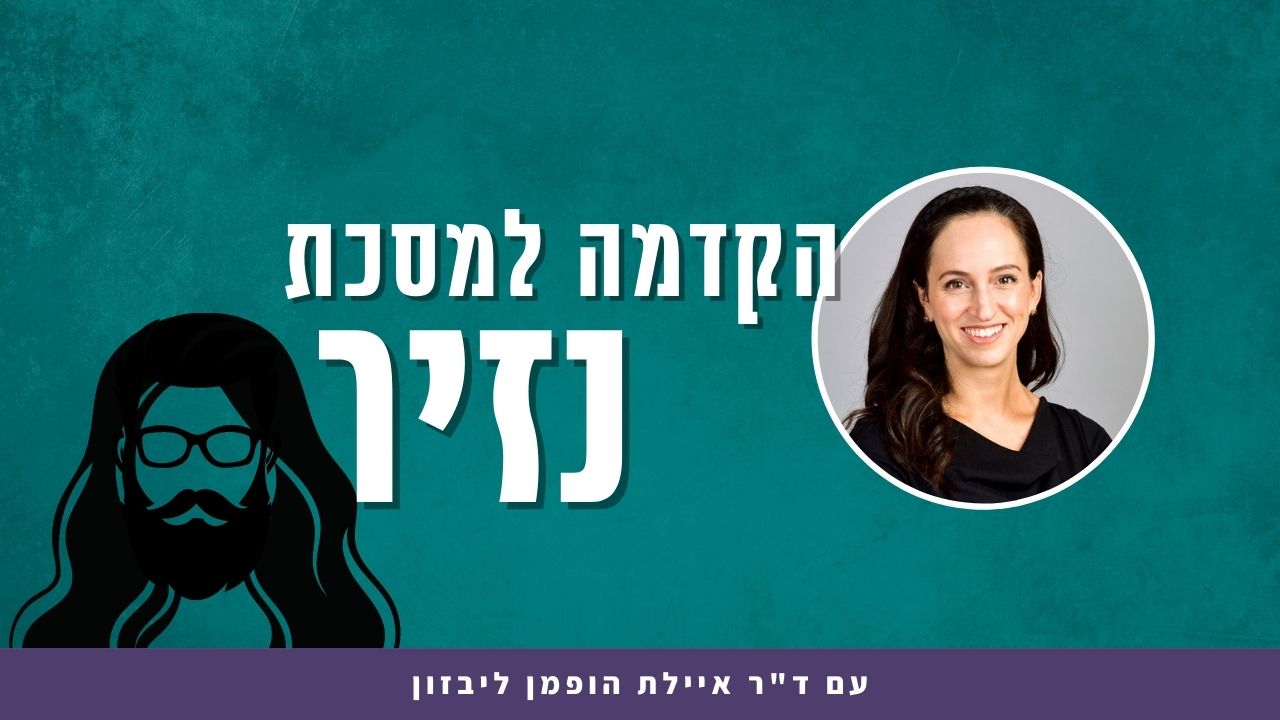נזיר נה
לֵימָא כְּתַנָּאֵי: הַנִּכְנָס לְאֶרֶץ הָעַמִּים בְּשִׁידָּה תֵּיבָה וּמִגְדָּל, רַבִּי מְטַמֵּא, וְרַבִּי יוֹסֵי בְּרַבִּי יְהוּדָה מְטַהֵר. מַאי לָאו: רַבִּי סָבַר מִשּׁוּם אַוֵּירָא, וְרַבִּי יוֹסֵי בְּרַבִּי יְהוּדָה סָבַר מִשּׁוּם גּוּשָּׁא?
Let us say that this is parallel to a dispute between tanna’im, as it is taught: With regard to one who enters the land of the nations not on foot but in a chest, a box, or a cabinet, Rabbi Yehuda HaNasi deems him ritually impure. And Rabbi Yosei, son of Rabbi Yehuda, deems him pure. What, is it not correct to say that they disagree in this regard: Rabbi Yehuda HaNasi, who deems him impure, holds that the Sages decreed impurity with regard to the air, and Rabbi Yosei, son of Rabbi Yehuda, holds that the Sages decreed impurity with regard to the earth, and consequently he is not impure, as the container prevents him from overlying the impurity?
לָא, דְּכוּלֵּי עָלְמָא מִשּׁוּם גּוּשָּׁא. מָר סָבַר: אֹהֶל זָרוּק — שְׁמֵיהּ אֹהֶל, וּמָר סָבַר: לָא שְׁמֵיהּ אֹהֶל.
The Gemara rejects this suggestion: This is not necessarily the correct interpretation of their dispute, as one can say that everyone agrees that the decree is with regard to the earth, and their dispute concerns only the case of one who enters in a chest, a box, or a cabinet. One Sage, Rabbi Yosei, son of Rabbi Yehuda, holds that a moving tent, an item that serves as a tent as it passes over ritual impurity, is called a tent, and therefore a person who enters the land of the nations in a large container is protected from its impurity. And one Sage, Rabbi Yehuda HaNasi, holds that a moving tent is not called a tent. Consequently, nothing separates this individual from the impurity, and he becomes impure by overlying the land of the nations.
וְהָתַנְיָא, רַבִּי יוֹסֵי בְּרַבִּי יְהוּדָה אוֹמֵר: תֵּיבָה שֶׁהִיא מְלֵאָה כֵּלִים, וּזְרָקָהּ עַל פְּנֵי הַמֵּת בְּאֹהֶל — טְמֵאָה, וְאִם הָיְתָה מוּנַּחַת — טְהוֹרָה.
The Gemara asks: But isn’t it taught in a baraita that Rabbi Yosei, son of Rabbi Yehuda, says: A box that is full of utensils that one threw over a corpse in a tent, in such a manner that it overlay the corpse, is impure, and everything inside it is also rendered ritually impure, as it does not provide the protection of a tent. And if it was placed down and positioned as a tent over a corpse, it is pure, and its contents are protected from the impurity. This shows that according to the opinion of Rabbi Yosei, son of Rabbi Yehuda, a moving tent is not considered a tent, which contradicts the above claim.
אֶלָּא: דְּכוּלֵּי עָלְמָא מִשּׁוּם אַוֵּירָא, וּמָר סָבַר: כֵּיוָן דְּלָא שְׁכִיחָא — לָא גְּזַרוּ בֵּיהּ רַבָּנַן, וּמָר סָבַר: אַף עַל גַּב דְּלָא שְׁכִיחָא — גְּזַרוּ בֵּיהּ רַבָּנַן.
In light of this argument, the Gemara concedes that the previous explanation of the dispute is incorrect. Rather, one must say that everyone agrees that the decree of impurity concerning the land of the nations is with regard to its air, and one Sage, Rabbi Yosei, son of Rabbi Yehuda, holds that since it is not common for one to move around in an enclosure, the Sages did not decree impurity with regard to this case. And one Sage, Rabbi Yehuda HaNasi, holds that although it is not common the Sages nevertheless decreed impurity with regard to it.
וְהַתַּנְיָא: הַנִּכְנָס לְאֶרֶץ הָעַמִּים בְּשִׁידָּה תֵּיבָה וּמִגְדָּל — טָהוֹר, בְּקָרוֹן וּבִסְפִינָה וּבְאִיסְקַרְיָא — טָמֵא.
The Gemara adds: And it is taught in the Tosefta (Oholot 18:5) in accordance with this explanation of the opinion of Rabbi Yosei, son of Rabbi Yehuda: One who enters the land of the nations in a chest, a box, or a cabinet is ritually pure. If he was in a wagon [karon], boat, or raft [iskareya], he is ritually impure. The difference is that the latter vessels are commonly used to convey people.
וְאִיבָּעֵית אֵימָא: הָכָא שֶׁמָּא יוֹצִיא רֹאשׁוֹ וְרוּבּוֹ לְשָׁם פְּלִיגִי.
And if you wish, say an alternative explanation of the dispute between Rabbi Yehuda HaNasi and Rabbi Yosei, son of Rabbi Yehuda. Both agree that the ritual impurity of the land of the nations is with regard to the earth, and a moving tent is considered a tent. Therefore, the person in question should be ritually pure according to both opinions. However, here they disagree with regard to a different issue, the concern lest he remove his head and the majority of his body from the chest, box, or cabinet into there, i.e., the land of the nations.
וְהָתַנְיָא, רַבִּי יוֹסֵי בְּרַבִּי יְהוּדָה אוֹמֵר: הַנִּכְנָס לְאֶרֶץ הָעַמִּים בְּשִׁידָּה תֵּיבָה וּמִגְדָּל — טָהוֹר, עַד שֶׁיּוֹצִיא לְשָׁם רֹאשׁוֹ אוֹ רוּבּוֹ.
And it is taught likewise in a baraita that Rabbi Yosei, son of Rabbi Yehuda, says: One who enters the land of the nations in a chest, a box, or a cabinet is pure, unless he actually removes his head or the majority of his body into the land of the nations. By contrast, Rabbi Yehuda HaNasi renders him ritually impure due to concern that one’s head might protrude from the container.
וּמַתְחִיל וּמוֹנֶה. אָמַר רַב חִסְדָּא: לֹא שָׁנוּ אֶלָּא בִּנְזִירוּת מוּעֶטֶת. אֲבָל בִּנְזִירוּת מְרוּבָּה — מִיסְלָק נָמֵי סָלְקִין לֵיהּ.
§ The mishna taught that a nazirite who became ritually impure through sources of impurity that do not cause him to forfeit his naziriteship, including his days of leprosy, starts counting again from the day of his purification, as his period of impurity does not count toward his naziriteship. Rav Ḥisda said: They taught this halakha of a leper only with regard to a short naziriteship of thirty days, as he shaves his hair for purification from leprosy, and therefore he must count an additional thirty days to allow his hair to grow sufficiently to shave for his naziriteship. However, with regard to a lengthy naziriteship, when thirty days or more remain in his naziriteship after having shaved for his leprosy, those days also count toward his term, and he need not recount his days as a leper.
מֵתִיב רַב שֵׁרֵבְיָא: מַתְחִיל וּמוֹנֶה מִיָּד, וְאֵין מְבַטֵּל בָּהֶן אֶת הַקּוֹדְמִין. בְּמַאי? אִילֵימָא בִּנְזִירוּת מוּעֶטֶת — קָבָעֵי גִּידּוּל שֵׂיעָר!
Rav Sherevya raises an objection from the mishna: He starts counting immediately, and he does not negate the earlier days due to them. To what case is the mishna referring? If we say it is referring to a short naziriteship, he requires a thirty-day period of hair growth, and as he shaved for purification of his leprosy, he must negate the earlier days as a practical manner, to enable his hair to regrow.
אֶלָּא לָאו, בִּנְזִירוּת מְרוּבָּה, וְקָתָנֵי: מַתְחִיל וּמוֹנֶה מִיָּד! הוּא מוֹתֵיב לַהּ וְהוּא מְפָרֵק לַהּ: בִּנְזִירוּת בַּת חֲמִשִּׁים יוֹם, דְּיָתֵיב עֶשְׂרִין, וְאִיתְיְלִידָא בֵּיהּ צָרַעַת. מְגַלַּח צָרַעְתּוֹ, וַהֲדַר יָתֵיב תְּלָתִין יוֹמִין דְּנָזִיר. דְּהָא אִית לֵיהּ גִּידּוּל שֵׂעָר.
Rather, is it not the case that the mishna is referring to a lengthy naziriteship, and nevertheless it teaches: He starts counting immediately, which indicates that his time as a leper is not included? Rav Sherevya raised the objection and he resolved it: The mishna is referring to a naziriteship of fifty days, in a case where he sat and observed twenty days of his vow, and at that point he developed leprosy. In that case, he shaves for his leprosy, and he again sits for thirty days as a nazirite. The problem of thirty days’ hair growth does not arise in this situation, as at the end of this period there is hair growth of thirty days.
מֵתִיב רָמֵי בַּר חָמָא: נָזִיר שֶׁהָיָה טָמֵא בְּסָפֵק, וּמוּחְלָט בְּסָפֵק,
Rami bar Ḥama raised an objection from a mishna (59b): With regard to a nazirite who has uncertain impurity from a corpse and whose status as a confirmed leper is uncertain,

